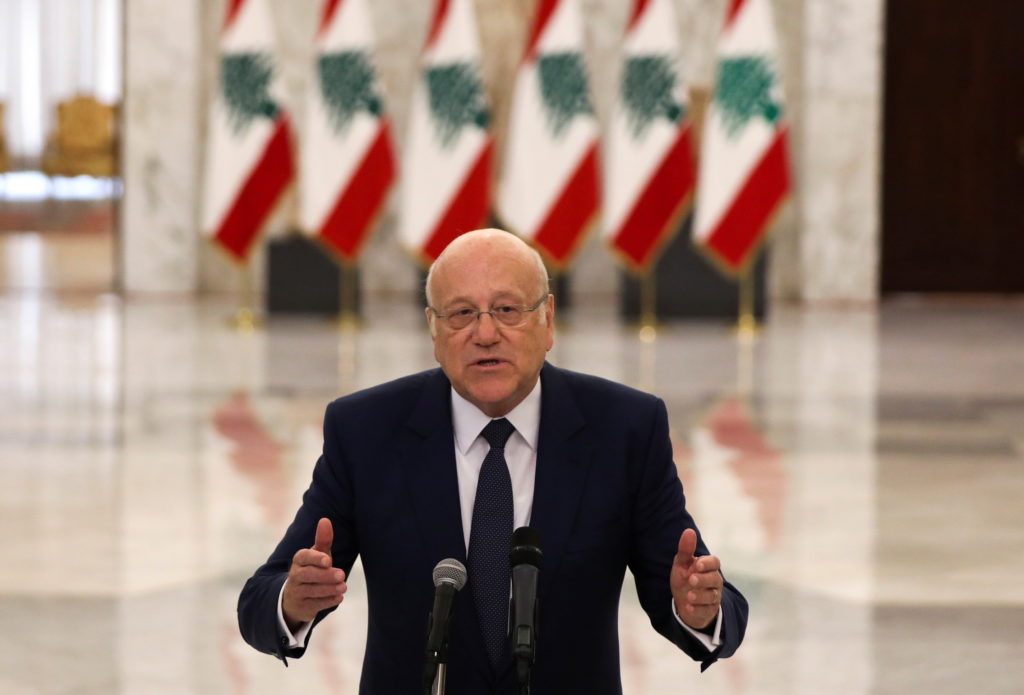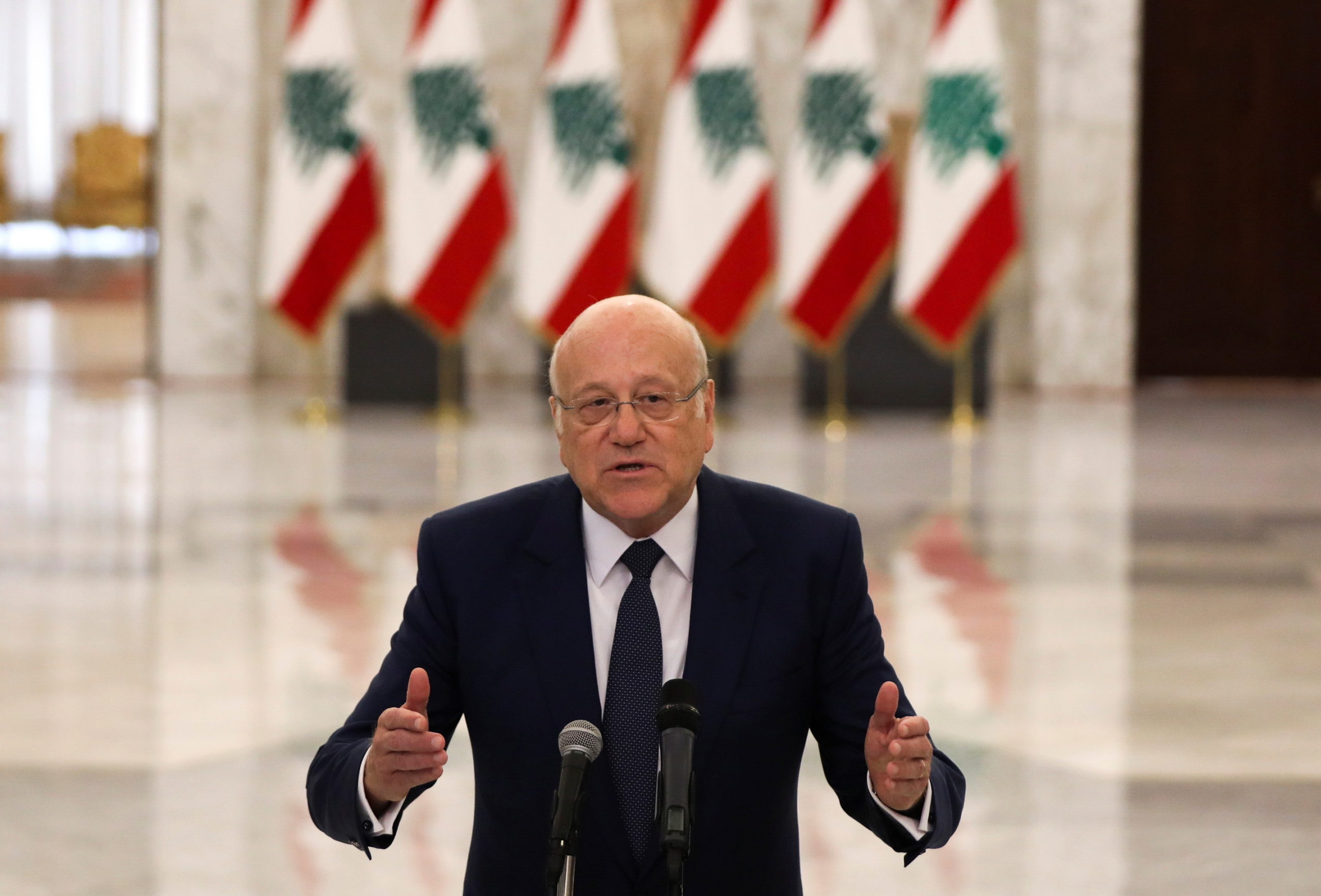
By ELAINE PASQUINI
FOLLOWING 13 MONTHS without a functioning government, on Sept. 10 Lebanon announced the formation of a new administration under the leadership of Prime Minister Najib Mikati.
To address this new dynamic amid Lebanon’s ever-worsening economic, political and social crises, the Arab Center Washington DC convened an online panel of experts on Sept. 28.
Patricia Karam, regional director of the Middle East and North Africa division at the International Republican Institute, enumerated Lebanon’s myriad problems including shortages of food, fuel and medicine, along with high unemployment, a decline in social services, the disintegration of state structures and severe currency depreciation.
The middle class has effectively collapsed, Karam added. According to a U.N. Economic and Social Commission for Western Asia report, 82 percent of the population is now living in “multidimensional” poverty, defined as a household lacking one or more of the following: a stable income, access to housing, healthcare or education.
“Banks are insolvent, education has suffered a blow with the departure of teachers, and healthcare has deteriorated with an exodus of nurses and doctors,” Karam explained. “All of this is happening while COVID-19 cases are rising and food poisoning is occurring because of poor refrigeration.”
One of the worst crises in Lebanon, however, is the “educational catastrophe for children,” Karam noted. “With the additional risk and reality of educators leaving, vulnerable children are facing the risk of never returning to school. Even pre-pandemic there were some one million or so children in Lebanon who had already been out of school,” she lamented.
Unfortunately, amid the deteriorating situation, Karam believes the new government is “more of the same.” The government’s primary aim is to boost the standing of Lebanon’s political apparatus that was heavily damaged in the wake of the Oct. 2019 uprising and the [2020] Beirut port explosion,” she argued.
As opposed to the previous government of Hassan Diab, which was mostly a government from one side of the political divide, “this government seems to have more of a cover from various political factions in Lebanon,” Halim Shebaya, executive director of the Arab Association of Constitutional Law, posited. “But,” he added, “it is important to remember that this government is coming from the very same regime of the post-[civil] war era and the post-2005 [Cedar Revolution] era. It is a government formed by the establishment and, in my view, it will govern for the establishment.”
Shebaya questioned whether Prime Minister Mikati, who is from the establishment, is going to govern differently than his predecessor and whether this government will “put forth some confidence-building measures that signal to the public that something has changed.”
In terms of the Western view of Lebanon, Randa Slim, director of the Middle East Institute’s Conflict Resolution and Track II Dialogues Initiative, pointed out that the United States is most concerned that Lebanon proceeds next year with its scheduled local, parliamentary and presidential elections.
Supporting the Lebanese Armed Forces is another demand of France and the U.S., which is “partly driven by the realization that this remains the last pillar…of the Lebanese state,” she explained. All other major institutions—except for the central bank which was saved by $1.1 billion from the International Monetary Fund (IMF) after the formation of the Mikati government—have collapsed or lost credibility, she added.
France and the U.S. are pushing for humanitarian assistance for the Lebanese people, Slim said. In addition to the humanitarian crisis facing the Lebanese people, the countries are concerned about an “exodus of economic refugees from Lebanon to Europe,” and not only Lebanese, but Syrians and Palestinians who are residing as refugees in Lebanon.
She noted that the U.S., France and many international countries, including Qatar, have said that future aid would be contingent on the formation of a Lebanese government that undertakes serious reforms. “Whatever reforms are going to be enacted are going to be tough reforms, not only on the Lebanese, but also on the establishment itself,” Slim observed.
WASHINGTON REPORT


Leave a Reply
You must be logged in to post a comment.